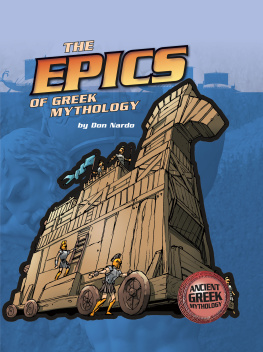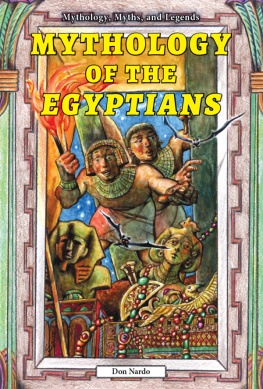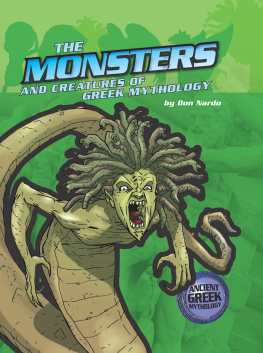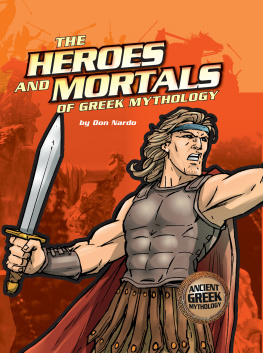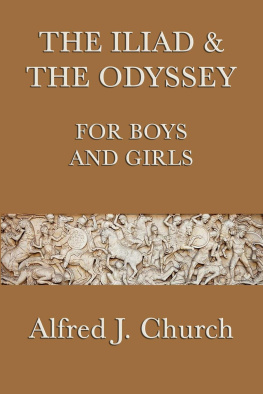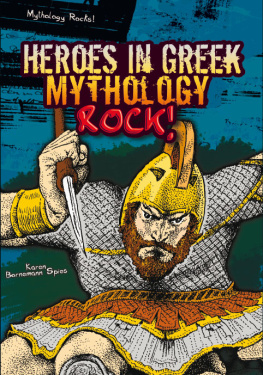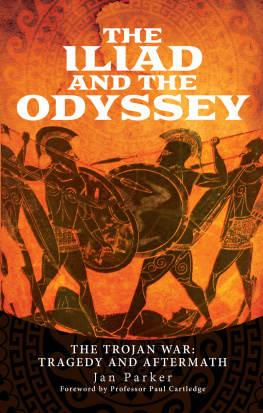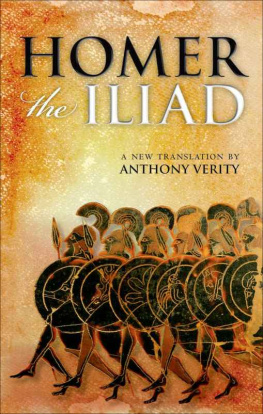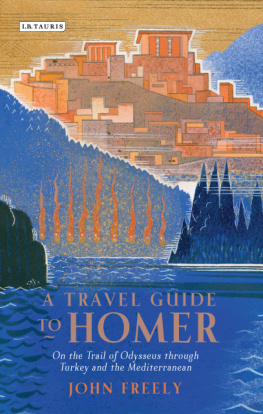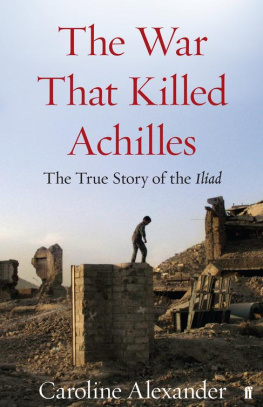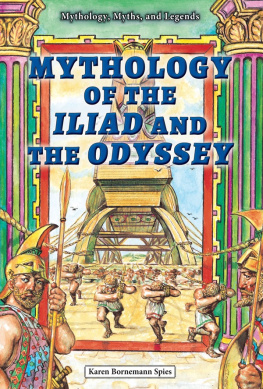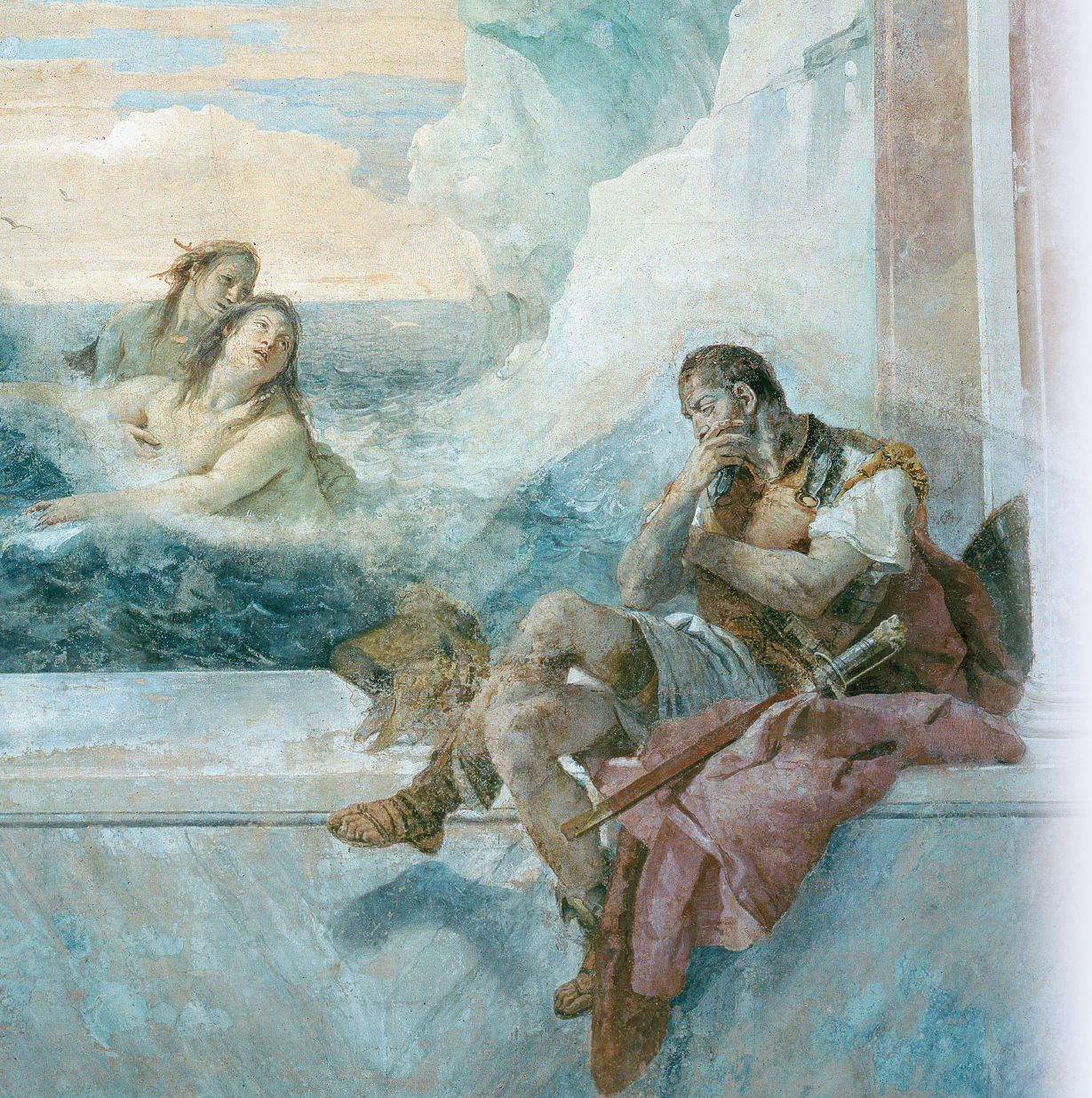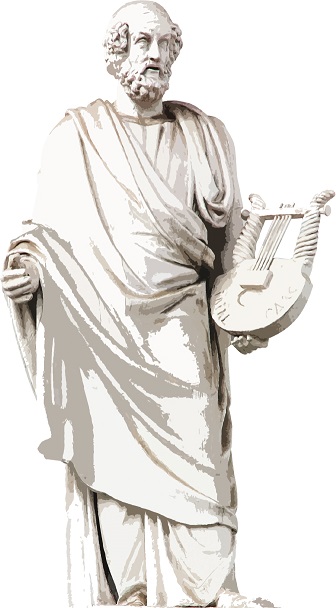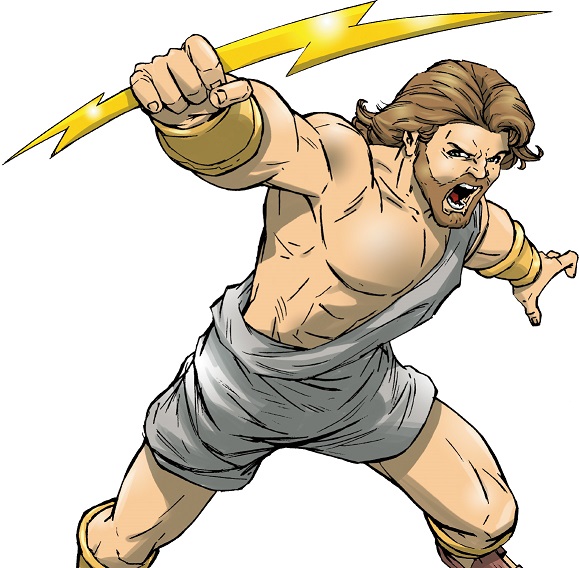GLOSSARY
Age of Heroes the period of the distant past in which the classical Greeks believed the stories told in their myths took place. Modern scholars call that era Greeces late Bronze Age and date it from about 1500 BC to 1150 BC.a union or bondrelated to designing and constructing buildingsa large fleet of shipsa storytellermodern scholars date Greeces Classical Age to about 500 BC to 323 BC. More generally, the inhabitants of Greece between about 800 BC and 300 BC.a general ideaall the beliefs, ideas, and values of a societya lack of harmony, disagreementintestines or internal organsa long poem, usually describing heroic actsa smithy, or a place where metals are worked, by heating and hammeringkindness, welcoming attitude toward gueststhe Underworld, the dark realm of the dead overseen by the god Hadesa state of living foreverhaving the power to make someone tipsy or drunka minor nature goddessthe group of gods led by Zeus and thought to live on top of Mount Olympus, Greeces highest mountainthe large peninsula making up the southern third of the Greek mainlandthe art or process of foretelling the future; or a specific predictiona funeral fire for burning the bodya container for arrows worn on the bodydeep, often religious, respectwords or deed that insults a god or religious beliefsin premodern times, a literate person hired to write letters or keep recordsa soul or spirit of a dead personvaluables, often seized in a wara man who tries to court or woo a womanEuropean-based
Chapter 1
THE DAWN OF WESTERN LITERATURE
Western styles that are still used for all manner of public buildings, and the Olympic Games.
As if all that were not enough, the ancient Greeks also ignited the dawn of Western literature. The Greeks invented nearly all of the literary forms and disciplines known today, including drama, historical writing, and the novel. Logic would dictate that these and other kinds of literature begin with simple, primitive forms. Over time they would slowly grow more complex and sophisticated. This was not the case, however. Just the opposite occurred. The first two examples of Western literature were nothing short of masterpieces. Grand, complex, and moving, they came to be seen by both the ancient and modern worlds as the height of literary creation.
The Poet
The two works are the of Greek kings besieged Troy, a prosperous trading city in Asia Minor (what is now Turkey). The second epic, the Odyssey, traces the adventures of one of those Greek kings, Odysseus, after Troys fall.
In 1757 artist Giovanni Battista Tiepolo used the Iliad as his inspiration to paint the nymph Thetis consoling her son Achilles.
Homer, the greatest name in epic poetry, is usually portrayed as a blind man.
The first versions of the two works likely appeared sometime in the the 800s BC. Initially they were passed on orally by traveling storytellers called . They recited them and other mythical tales from memory, adding a few new details or improving existing lines and phrases. In this way, the poems grew longer and more polished over time.
One of the bards eventually gained primary credit for the Iliad and Odyssey. His name was Homer. No one knows where and when he was born. The Greek island of Chios, off Asia Minors western coast, is a strong candidate for where. As for when, the mid-700s BC seems likely. And nothing is definitely known about his life.
What seems more certain is that Homer brought the two epics to their final and greatest forms. Exactly how he did this is unknown. It does appear that the art of writing developed in Greece during his lifetime. It may be that he dictated the epics to a a little at a time. That would have allowed him to add more complex detail than was normally done when reciting the works.
Also, once committed to paper, the poems would stop evolving. They would have become in a sense frozen in their now familiar form.
However he did it, Homer made the Iliad and Odyssey his own. He gained a standing as a writer and myth-teller that was second to none. His reputation became so great that for the rest of ancient times people across the known world referred to him, with a touch of awe, as the Poet.
Huge Influence
The Iliad and Odyssey did much more than ensure that Homer would be fondly remembered, however. These works laid the groundwork for the huge burst of literary activity the Greeks produced in the centuries that followed. Moreover, the two epics had an enormous influence on Greek culture and thought. As classical scholar Michael Grant has pointed out, these works exerted a profound civilizing influence on the Greeks. The epics, he said:
formed the foundation of their literary, artistic, moral, social, educational, and political attitudes. For a long time no histories of early times seemed at all necessary, since the Iliad and Odyssey fulfilled every requirement. They attracted universal esteem and
Homers epics also had a tremendous effect on the development of
Zeus and other gods played their part in shaping the events of the Iliad and Odyssey.
Just as important, Homer depicted the superhuman beings, along with mythical monsters, as interacting with humans. That interaction included various forms of worship. Thus, in addition to their many other qualities, the Iliad and Odyssey became manuals for understanding and worshipping the gods.
That practical religious function of Homers epics was no longer relevant after the Greek religion ceased to exist at the close of ancient times, in the 400s and 500s AD. The epics themselves survived, however. In early modern times they were translated into many languages, partially memorized by schoolchildren, and studied in colleges. They also came to be endlessly read, recited, and quoted by writers, national leaders, and ordinary folk. Soldiers have gone into battle with lines from Homer on their lips, historian Ernle Bradford wrote. Statesmen have quoted [the epics] in grave debates and conferences, and poets have tried (vainly) over the centuries to rival [their] story-telling power.
The power to keep an audience entertained for hours remains one of the chief qualities of the Iliad and Odyssey today. In part that is because these works remain rich sources of information about mythological characters and deeds. They are chock-full of action, adventure, valiant heroes, superhuman beings both good and evil, and terrifying monsters. In these and other ways, they are the direct predecessors of modern epic fantasies such as the Lord of the Rings trilogy and the Star Wars series. Homers epics have thrilled and inspired audiences for nearly 3,000 years. There seems little doubt that they will continue to do so for many centuries to come.
Chapter 2

